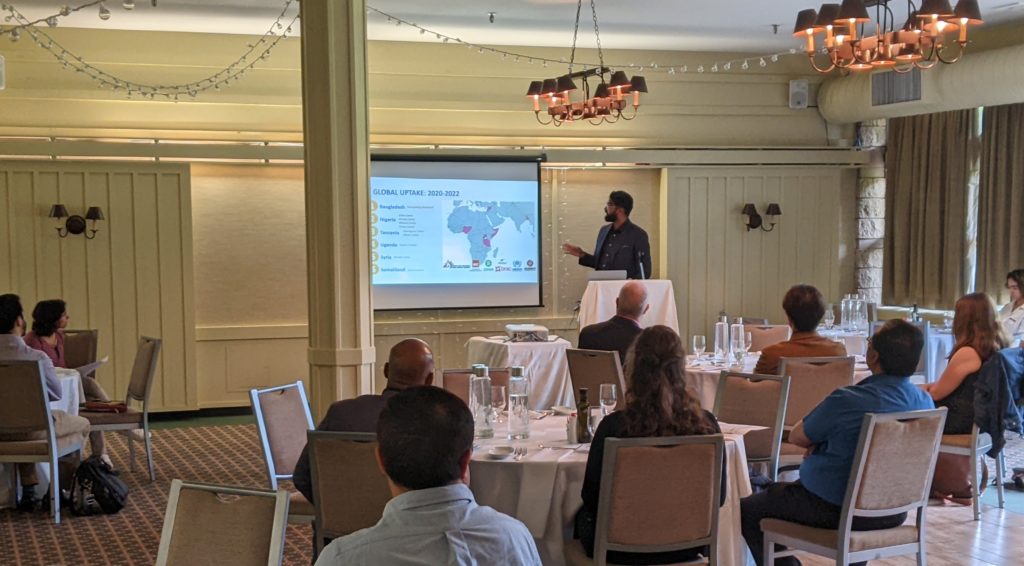Post
Published on June 15, 2022
On June 15, at this unique in-person A2I event on current challenges in water sector research, Dr. Syed Imran Ali shared the Dahdaleh Institute’s experience with translating engineering and health research into practitioner-facing tools that help advance public health engineering practice. His presentation highlighted the innovative Safe Water Optimization Tool, which uses machine learning to ensure water safety and enhance public health in humanitarian emergencies.

The A2I event is hosted by the Lassonde School of Engineering to advance collaborations among water professionals at the university with industry, municipalities, government, and NGOs. The event provided a platform for exploring new tools in water research, new partnerships, technology commercialization, first-hand knowledge transfer on water, and the exchange of ideas toward clean water technologies to support the SDGs.
Themes | Global Health & Humanitarianism |
Status | Active |
Related Work | |
Updates |
N/A
|
People |
You may also be interested in...
Hot off the Press – Recent Publications by Dahdaleh Institute Researchers
Research by Dahdaleh Institute Research Fellow James Stinson and his partners has been featured as a case study by the Canadian Climate Institute as part of their "Indigenous Perspectives" series, which showcases exemplary Indigenous work ...Read more about this Post
Hot off the Press – New Opinion Article Publication: DATA: A Key for Unlocking Quality in WASH Programming
A new article has been authored by experts from the Dahdaleh Institute for Global Health Research and collaborators from mWater, the Mortenson Center, Aquaya Institute, Global Water Challenge, and ETH Zurich. The paper, titled Challenges ...Read more about this Post
Recap – Inuit Perspectives: Health and Well-being Through Storytelling
On January 31, 2024, the Wellness Impact Lab at the Dahdaleh Institute kicked off its 3-part seminar series focused on Inuit perspectives on mental health and well-being, ‘Climate Change and Mental Health: Listening to the ...Read more about this Post
